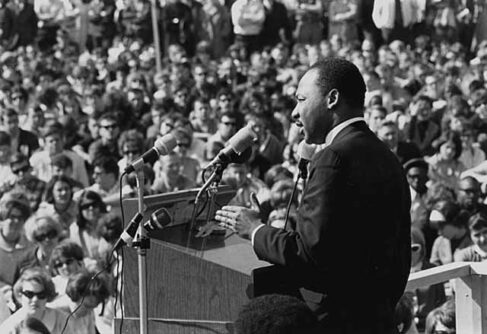And crucially, it was middle-income groups that took the biggest hit:
Over the recent three-year period, median net worth decreased for all income groups except for the top decile, for which it was basically unchanged. . . . The middle of the income distribution (the groups between the 20th and 90th percentiles) saw consistently large drops in median net worth between 2007 and 2010.
The White House responded to the Fed report by arguing that “the entire decline in household wealth took place before President Obama came into office.” As this response from the e21 think tank explains, the rebound in wealth during the Obama administration has taken place in asset classes held more by the wealthy than by middle-class citizens, whose wealth is largely in their houses. The middle class suffered real loss of wealth during the Obama administration as house prices continued to fall; the average American simply does not feel that the downturn was confined to the period between the Lehman Brothers collapse in September 2008 and the president’s inauguration in January 2009. We have been in a several-year period where the middle class seems to be in decline.
The decline of the middle class is to be lamented not merely because of the misfortunes and disappointed expectations suffered by middle class individuals. Rather, the middle class is crucial to the welfare of the whole United States community for all sorts of reasons.
Among those reasons is that the middle class has long provided moral leadership in America -- not just as a balance between rich and poor but as a group with the particular role of articulating what is best for an egalitarian, democratic society.
Alexis de Tocqueville recognized the importance of the pilgrims’ middle class penchant for equality in setting the tone of the new American community:
It was from the heart of the middle classes that most of the emigrants came . . . and while the hierarch of rank still classed men despotically in the mother country, the colony more and more offered the new spectacle of a society homogeneous in all its parts. Democracy such as antiquity had not dared to dream of sprang full-grown.
As Tocqueville noted, the philosophers of antiquity had theorized about the role of the middle class in a good political society but seldom saw it realized in practice.
Among the philosophers of antiquity, Aristotle argued that communities with a large middle class have healthy politics for many reasons: the middle part of the population has neither the insolence of the rich or the temptations into petty wickedness that accompany poverty; the middle recognizes the need to accommodate both the claims to equality of all men and the claims to honor of those who have distinguished themselves; the middle class is least likely divide the city into factions because they have common interests will all the other parts of the community.
Aristotle wrote that in his time only large states had significant middle classes; the fact that most ancient Greek states were small city-states with insignificant middle classes prevented the virtues of the middle class from prevailing in ancient politics. America has enjoyed the political benefits that Aristotle foresaw from a large middle class.
The decline of the middle class today isn’t so great that America will lose entirely the leadership that comes from middle America. However, when more in the middle class need to take second jobs to make ends meet and so can’t find time to volunteer; when more middle-class citizens become transient renters rather than homeowners ready to serve on their community associations; when people become embittered because their pursuit of the American Dream has left them with an underwater mortgage and unable to fund their children’s college education -- when these sorts of things happen, members of the middle class lack the energy and confidence to lead their fellow citizens. That’s more than a misfortune for the individuals whose fortunes have declined -- it’s a misfortune for America as a whole.





